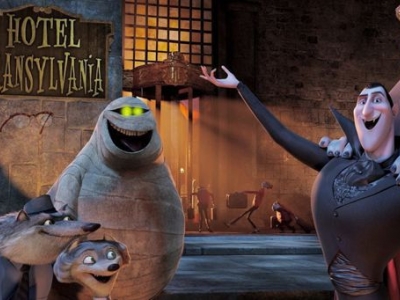
Looper: Movie Review
Mark Hadley reviews a new time-travel movie, and says it raises some great questions you can ask your kids.
It doesn’t matter how far we project our lives into the future, we always seem to come back to the problems we face today. Looper, the latest in a long line of time-bending science fiction thrillers proves the point yet again.
Looper is the brainchild of writer-director Rian Johnson, the creator of the edgy high-school drama Brick and the con-men comedy The Brothers Bloom. In his latest outing, Johnson teams Bruce Willis and Joseph Gordon-Levitt as the same man separated by thirty years of crime.
Time travel is discovered in 2072 and almost immediately outlawed. Only criminal syndicates have the resources to access it from then on, and they use it to cleanly dispose of people who’ve become a problem. Rather than kill them in the present and risk prosecution, they send them back 30 years where they’re met by ‘Loopers’ – young men with shotguns who know how to make a body disappear. In 2044, Joe earns a comfortable living doing the mob’s dirty work, learning French on the side and hoarding his earnings, hoping for a new life. But his dream of escape teeters on the brink of disaster the day the mob sends back a target he recognizes as his older self.
As a sci-fi puzzle, Looper has as many hang-ups as your average time-travel tale, but that doesn’t stop it from being an enjoyable watch. There are some very clever ideas, like keeping future victims in line by threatening their past selves. Personally, I love watching the older Joe wonder at how he could ever have been so stupid, a sci-fi turn on the age old moral, ‘You can’t put old heads on young shoulders’.
But careful what you look for in Looper. Bruce Willis’ inclusion doesn’t make this a futuristic Die Hard. It’s more Inception than Total Recall, with lots of time for Gordon-Levitt to think through the exchange he’s being asked to make: sacrifice your future for the sake of a snug life now. And that conundrum is as real today as it is in Looper’s imaginary future.
Taking a long-term view of life
Joe is literally working in a job that will eventually kill him. But like many people in our present he can put off thinking about the consequences so long as the distractions are loud and colourful. Narrating his own story, he tells the audience:
This job doesn’t tend to attract the most forward thinking people.
Bruce Willis' character tries to convince him that he actually has a future worth putting aside his present pleasures for, but his pleas fall on deaf ears. “This is my life now, I earned it,” Joe says as he strives to put the older man in a box. “So why don’t you do what old men do and die?” But Willis is motivated to stay alive, because somewhere in Joe’s future a woman has saved his life. His younger counterpart demands to know how and his question gives rise to closest thing Looper has to a spiritual moment:
This is your life now? Let’s look at your life. You’re murderer, a junkie and you have a job mentality. She’s going to save your life and you say how? The question is why?
I’ve met many young Australians who throw up similar objections to the salvation God offers. They use their unanswered questions as a reason to reject His grace. But the holes in their knowledge do nothing to reduce the value of God’s gift. They’re being offered a get-out-of-jail free card they know they don’t deserve, and their doubts are just a smokescreen. They realise their life is temporary and they know their pleasures will run out, but they haven’t run out yet. The trouble is the longer they delay, the closer their present comes to their future. One day they may discover, like Joe, that they only have room left for the most desperate decisions – but is God obliged to provide in the future what He already offers in the present?
Watching Looper with your kids
Looper is the sort of film I would recommend science-fiction mad dads to take their mature sons to – or daughters of course. There are the usual language and violence issues associated with an M rated film and one scene with a scantily clad woman that halts before it goes too far. The real advantages are the topics open for conversation on offer:
- Why would someone spend their entire life doing a job they know is going to kill them?
- Why is Older Joe impressed with the woman he meets in the future? Because she saves him, or because she saves him?
- What’s so impressive about God saving us – like both Joes, we’ve done nothing to deserve it?
For more articles from Growing Faith, subscribe to our monthly e-newsletter.
To hear about the latest books and resources from Youthworks Media, subscribe here.







